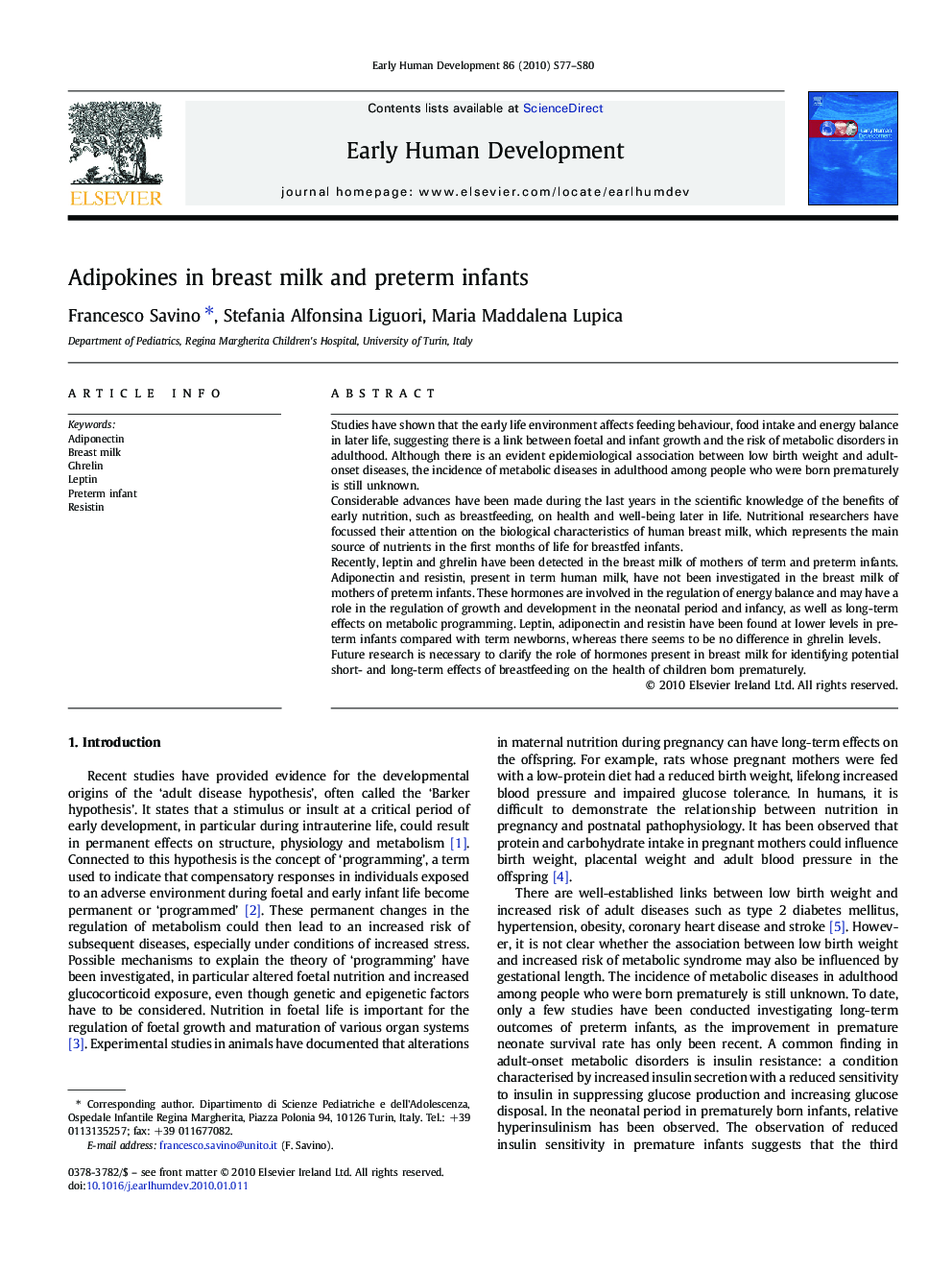| Article ID | Journal | Published Year | Pages | File Type |
|---|---|---|---|---|
| 3916977 | Early Human Development | 2010 | 4 Pages |
Studies have shown that the early life environment affects feeding behaviour, food intake and energy balance in later life, suggesting there is a link between foetal and infant growth and the risk of metabolic disorders in adulthood. Although there is an evident epidemiological association between low birth weight and adult-onset diseases, the incidence of metabolic diseases in adulthood among people who were born prematurely is still unknown.Considerable advances have been made during the last years in the scientific knowledge of the benefits of early nutrition, such as breastfeeding, on health and well-being later in life. Nutritional researchers have focussed their attention on the biological characteristics of human breast milk, which represents the main source of nutrients in the first months of life for breastfed infants.Recently, leptin and ghrelin have been detected in the breast milk of mothers of term and preterm infants. Adiponectin and resistin, present in term human milk, have not been investigated in the breast milk of mothers of preterm infants. These hormones are involved in the regulation of energy balance and may have a role in the regulation of growth and development in the neonatal period and infancy, as well as long-term effects on metabolic programming. Leptin, adiponectin and resistin have been found at lower levels in pre-term infants compared with term newborns, whereas there seems to be no difference in ghrelin levels.Future research is necessary to clarify the role of hormones present in breast milk for identifying potential short- and long-term effects of breastfeeding on the health of children born prematurely.
